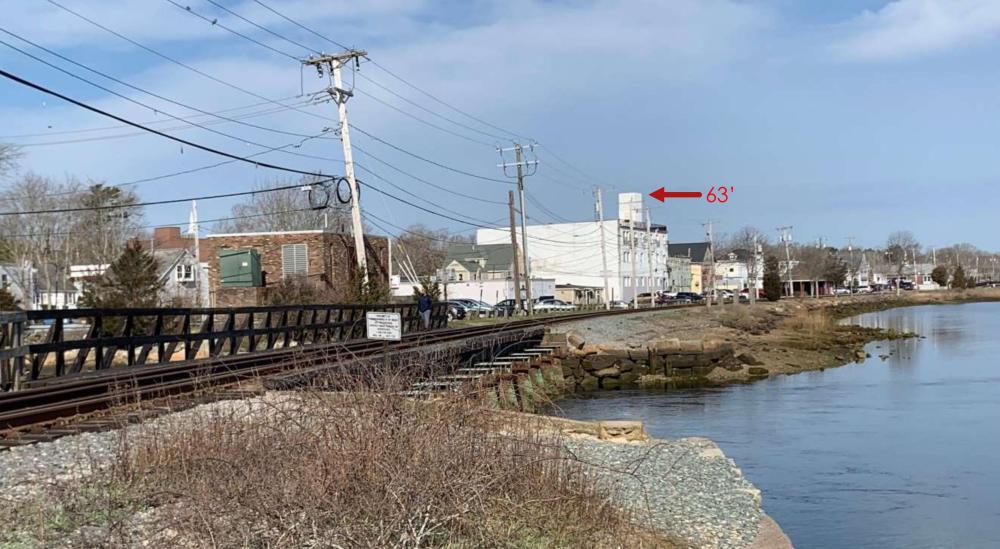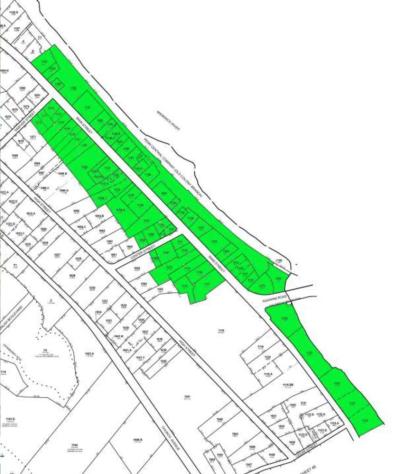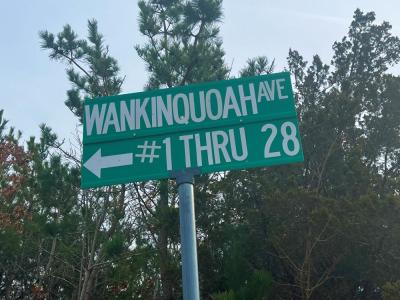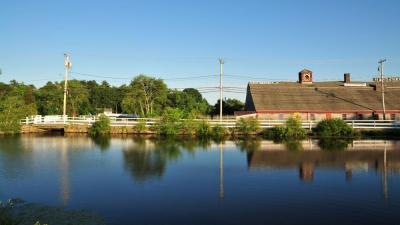Urban renewal, sewer and dam on Town Meeting agenda
All of Wareham’s registered voters will have the chance to make their opinions known about some of the most controversial issues that have faced the town in recent years, at the Spring Town Meeting on Monday, April 24.
Town Meeting will take place at 7 p.m. in the “cafetorium” of Wareham Elementary School, 63 Minot Ave.
Voters are tasked with deciding whether to approve the possible rezoning of Main Street, whether to cancel the planned sewer repairs in Swifts Beach, whether to press the town to pursue the question of who owns the crumbling Parker Mills Dam and whether to press the town to investigate possibly illegal earth removal by companies.
They will also be asked to approve a $69 million town budget for Fiscal Year 2024, as well as a host of community preservation funding requests by businesses and organizations operating in town.
Here is a closer look at what’s on the agenda:
An extreme makeover for Main Street
Town Meeting will vote on whether to approve a series of ambitious changes to the zoning laws, which the Redevelopment Authority claims will bring new life into downtown Wareham’s economy.
The changes, approved by the Planning Board in February, would see the maximum allowed building height increase from 40 to 50 feet, the maximum number of housing units per acre double from 15 to 30 and the number of parking spaces per housing unit decrease from two to one.
The proposed changes will affect all of Merchants Way, stretching from the Main Street fire station to 59 Main St., and on the other side of Main Street, from the fire station to Tobey Hospital.
The vision is that downtown Wareham’s buildings will have parking lots on the ground floor and mixed-used buildings, featuring businesses, offices and apartments, on the upper floors. This way, the parking lots can bear the brunt of potential flooding on Main Street and Merchants Way.
The Redevelopment Authority is currently investigating ways to floodproof downtown buildings, with the help of an outside consulting firm. This is separate from the urban renewal plan, but the town plans to balance flood protection with economic revitalization.
Buildings on Main Street could increase to 65 feet in height, if approved by the Planning Board. Buildings of that height would have to meet certain criteria, such as improving waterfront access or having “special features of interest.”
Currently, all housing developments on Main Street must be built on a 10,000-square-foot lot for the first unit, plus 2,000 square feet for each additional unit. These numbers will go down to 5,000 and 1,000, respectively.
The zoning changes that residents will vote on at Town Meeting are only the first step in the Redevelopment Authority’s decades-long plan to remodel Main Street and Merchants Way.
Swifts Beach sewer
Town Meeting will vote on whether the town should cancel its contract with an outside firm to replace the sewer line underneath the Swifts Beach neighborhood.
The planned replacement of the sewer line has become a drawn-out controversy, inspiring a neighborhood advocacy group to petition for the cancellation of the project.
When a sewer line on Wankinquoah Avenue collapsed in 2016, the town chose to replace the gravity sewer system with a low-pressure system. At the time, the Sewer Commission and Water Pollution Control Facility Director Guy Campinha argued that the replacement was not only the cheapest option, but necessary for the aging sewer system.
The most controversial part of the repair was the news that 130 Swifts Beach homes would have to install sewage-grinding pumps, which cost anywhere from $400 to $4,000, at the homeowners’ expense. Several Swifts Beach residents, unable to handle the sudden expense, reportedly planned to move out and sell their homes.
Swifts Beach residents have accused Campinha and the Sewer Commission of lacking transparency and falsely claiming that homeowners would not have to cover the cost of the pumps.
In February, the Sewer Commission decided to delay the repairs until after Labor Day, but advocates said that they would not rest until the project is completely canceled.
Parker Mills Dam ownership
Town Meeting will vote on whether to press the town to investigate what portion of the Parker Mills Dam is owned by the A.D. Makepeace Company.
Barry Cosgrove, who brought the vote to Town Meeting, said that if Makepeace does not acknowledge its partial ownership of the structure, it is shrugging off its responsibility to pay for necessary repairs of the dam.
The Elm Street bridge, which sits atop the dam, has been closed for nine years due to the poor condition of the dam. In 2014, the state said that the dam’s failure would pose a risk to life and property. The town plans to completely remove the dam in the future, but Cosgrove said this might not be possible if Makepeace doesn’t admit ownership and help with the costs.
The town wanted to replace the Elm Street bridge in 2019, but the town could not get a dam safety permit because the ownership of the dam was still unclear.
Cosgrove presented emails from December 2022 in which the state Department of Conservation and Recreation states that “A.D. Makepeace Company holds an ownership interest in Parker Mills Dam,” citing “several deeds” that list Makepeace as a partial owner.
A Makepeace spokesperson told Wareham Week that the company is working with Town Counsel Richard Bowen to sort out who owns the dam.


















